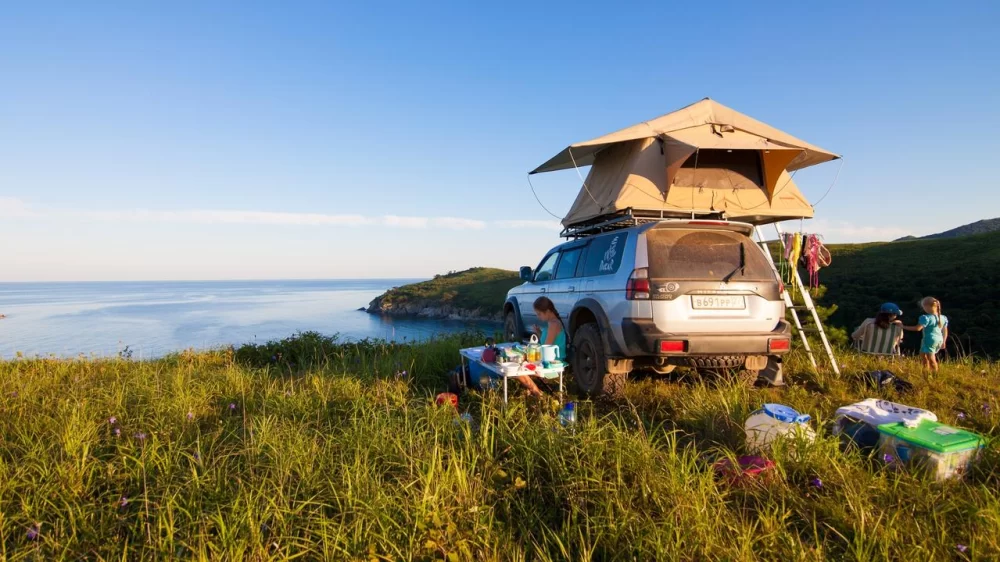Learn how to choose the right camping gear for your trip. From tents to backpacks, this guide offers essential tips and expert advice for selecting the best camping equipment for your outdoor adventure.

How to Choose the Right Camping Gear for Your Trip
- 1. Understand Your Camping Needs
- 2. Selecting the Perfect Tent
- 3. Essential Sleeping Gear
- 4. The Right Backpack
- 5. Cooking and Water Gear
- 6. Clothing and Footwear
- 7. Navigating with Tools and Technology
- 8. Extra Accessories for Comfort
1. Understand Your Camping Needs
Before embarking on any outdoor adventure, it’s crucial to understand the specific needs of your trip. Will you be hiking through the wilderness for days, or simply camping in a more accessible area? Knowing your destination, the climate, and the type of activities you plan to engage in will guide your gear choices. I once went on a camping trip where the terrain was rugged, and having the right equipment, such as durable boots and a tough tent, made all the difference in ensuring my comfort and safety.
2. Selecting the Perfect Tent
The tent is arguably the most important piece of camping gear, and choosing the right one can make or break your trip. Think about factors like the seasonality (will you need a 3-season or 4-season tent?), the number of people, and the size of your group. When I camped in a remote national park, I opted for a lightweight two-person tent that was easy to set up and highly waterproof. A spacious tent can provide extra comfort, especially on longer trips, but don’t forget to consider the ease of setup and durability for various weather conditions.
3. Essential Sleeping Gear
Getting a good night’s sleep in the wild is critical. A sleeping bag suitable for the season and sleeping pad or air mattress is a must. I’ve had experiences where my choice of sleeping pad transformed my camping experience—one particularly cold night, my air mattress kept me insulated from the freezing ground, ensuring a comfortable rest. Make sure to choose a sleeping bag rated for the temperatures you expect, and prioritize comfort and warmth to avoid waking up cold and restless.
4. The Right Backpack
Your backpack is another essential item when selecting camping gear. When choosing a backpack, pay attention to the size, fit, and functionality. A well-fitting pack that’s the right size for your needs can make a huge difference during a long hike. On one of my backpacking trips, I carried a 50-liter pack that perfectly balanced weight and storage. Remember, backpacks should be comfortable to wear for long periods, with adjustable straps and enough room for all your gear without being overly heavy.
5. Cooking and Water Gear
Cooking while camping doesn’t have to be complicated, but having the right cooking gear is essential. Lightweight stoves, portable cookware, and compact utensils can make meal preparation much easier. When I went camping near a mountain lake, we used a portable stove to cook hot meals, which felt like a luxury after a day of hiking. Equally important is water purification. Bring a water filter or purification tablets, especially if you’ll be near natural water sources. Staying hydrated is crucial in the wild, so ensure you’re prepared to collect and purify water.
6. Clothing and Footwear
Proper clothing and footwear are essential for your comfort and safety. Depending on the climate, you'll need layers, including moisture-wicking base layers, insulating mid-layers, and waterproof outer layers. When I camped in a coastal region, I learned the importance of packing waterproof clothing because the weather turned unexpectedly, and I stayed dry while others struggled. Your footwear should be comfortable, sturdy, and weather-appropriate, especially if you’ll be doing a lot of hiking. Good quality hiking boots will provide the support and protection needed for rough terrain.
7. Navigating with Tools and Technology
Having the right navigation tools is vital in the wild. Even if you're familiar with the area, bring a map and compass or a GPS device. On a recent hiking trip, I relied on my handheld GPS unit to stay on track, which was especially useful when trails weren’t clearly marked. If you're venturing into remote areas, a satellite phone or emergency beacon can also be a lifesaver. Technology can play a crucial role in ensuring your safety, so don’t overlook it during your gear selection process.
8. Extra Accessories for Comfort
Lastly, consider adding extra accessories to your camping gear to enhance comfort. Items like a headlamp, multi-tool, or camp chair can significantly improve your outdoor experience. I once packed a compact camp chair that became my favorite spot to relax after a long day of hiking. Other items, like portable speakers, a hammock, or an extra pillow, can provide additional relaxation and enjoyment, making your trip even more memorable.
Deschutes NF-Cascade Lakes Area
Bend, OR 97701, USA
Visit Location PageNew Shady Rest Campground
Sawmill Cutoff, Mammoth Lakes, CA 93546, USA
Visit Location Page